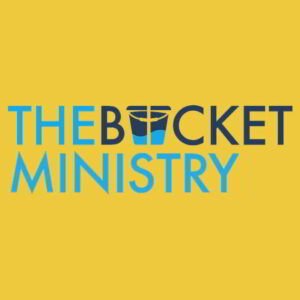NORTH TEXAS — Imagine waking up tomorrow to find that every faucet in your home has run dry. The only water available is polluted, murky and swimming with bacteria. Just by looking at the water, you know that a single sip could make you dangerously ill. This is not a hypothetical scenario—it is the daily reality for nearly 4 billion people around the world.

Every day, unsafe drinking water quietly claims lives. It seeps into communities, carrying diseases like cholera and typhoid, which forces families to make an impossible choice: drink contaminated water or risk dying of thirst.
According to The National Library of Medicine, diarrhea, linked to unsafe drinking water and sanitation, is the eighth leading cause of mortality worldwide, responsible for over 1.6 million deaths across all age groups. It is also the fifth leading cause of death among children under five, accounting for approximately 446,000 fatalities.
As followers of Christ, we are called to care for the least of these, and we should be deeply concerned by these statistics. But how often do we think of clean water as a fundamental part of loving our neighbor?
Once we grasp the life-changing impact of clean, safe drinking water, it transforms our perspective as Christians. And the best part? Solving this crisis isn’t out of reach. Together, we have the power to bring lasting change that can break the generational cycle of suffering caused by unsafe water.
The first step in addressing this silent crisis is recognizing the heartbreaking realities faced by those without access to clean water.
The devastating physical consequences of unsafe water
While disease exists everywhere, the illnesses caused by contaminated water in underserved communities are far more devastating.
Drinking unsafe water exposes millions to cholera, typhoid, dysentery and parasitic infections. Malnutrition and stunted growth are also harsh realities for children in these regions, as chronic diarrhea weakens their bodies and prevents them from absorbing essential nutrients, leading to long-term developmental setbacks. These physical effects are the same reason that families in communities around the world don’t name their children before the age of 2, because death is so common.
But here’s the most tragic part—these consequences are entirely preventable. In a world of medical breakthroughs and technological advancements, we have the tools, resources and solutions to provide clean water to those who need it most.
Even the simplest tools are effective. Researchers at Hope College analyzed the use of a point-of-use water filter in the Kibera slum in Kenya found that self-reported cases of diarrhea plummeted from 52.7% to just 2.2% within 70 days, dramatically improving health outcomes.
This kind of transformation not only prevents illness but also allows families to thrive. With fewer cases of waterborne illnesses, children can attend school more consistently, parents can provide for their families through steady work and individuals experience an increase in overall well-being and joy.
A call to action for Believers
For followers of Jesus, the global water crisis presents a greater opportunity to not only transform physical but also spiritual lives. We must stop seeing this issue as just a humanitarian issue but as a spiritual issue. Water not only sustains one’s physical health but their soul as well. Most importantly, clean water opens the door for Gospel conversations, evangelism and community development.
The imagery of transforming dirty to clean water is a powerful illustration of the cleansing power of Christ’s blood. Just as dirty water is made clean because of a water filter, Jesus purifies our souls by taking our sin and restoring our health.
As the Body of Christ, we are called to love our neighbors—not just in word but in action. That means addressing both the physical and spiritual needs of others. Whether through our time, resources or financial giving, we have the ability to bring healing to communities suffering from the preventable crisis of unsafe drinking water.
Access to clean water should never be a privilege; it is a fundamental human right. Let’s join hands and bring more awareness to this silent global crisis. By doing so, we are honoring God’s command in Mark 12:
“And you shall love the Lord your God with all your heart and with all your soul and with all your mind and with all your strength.’ The second is this: ‘You shall love your neighbor as yourself.’ There is no other commandment greater than these.” (Mark 12:30-31, ESV)
Christopher Beth is the founder, chief storyteller and director of The Bucket Ministry, a global nonprofit sharing God’s love through the gift of clean, safe, drinking water.
Read more news on Christian Ministry, Evangelism, Clean Water, and Water Filters.




